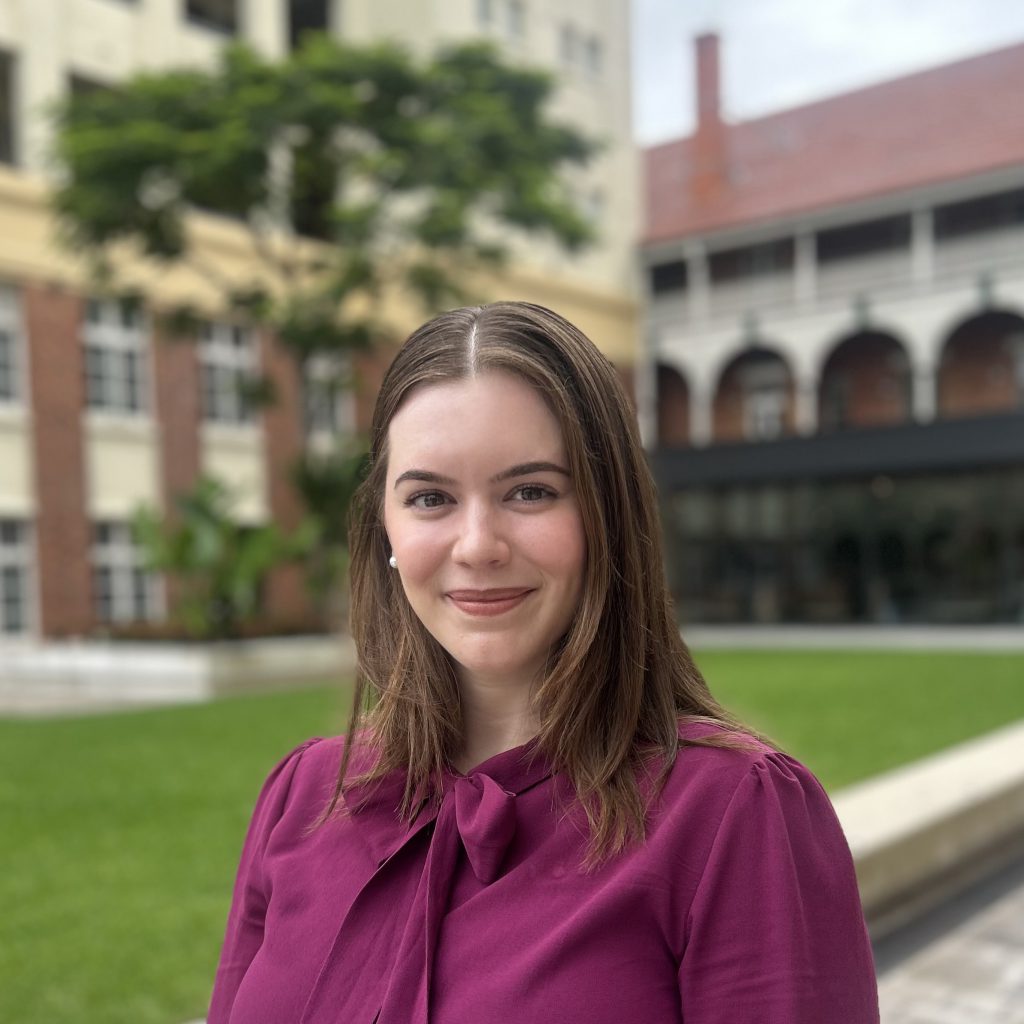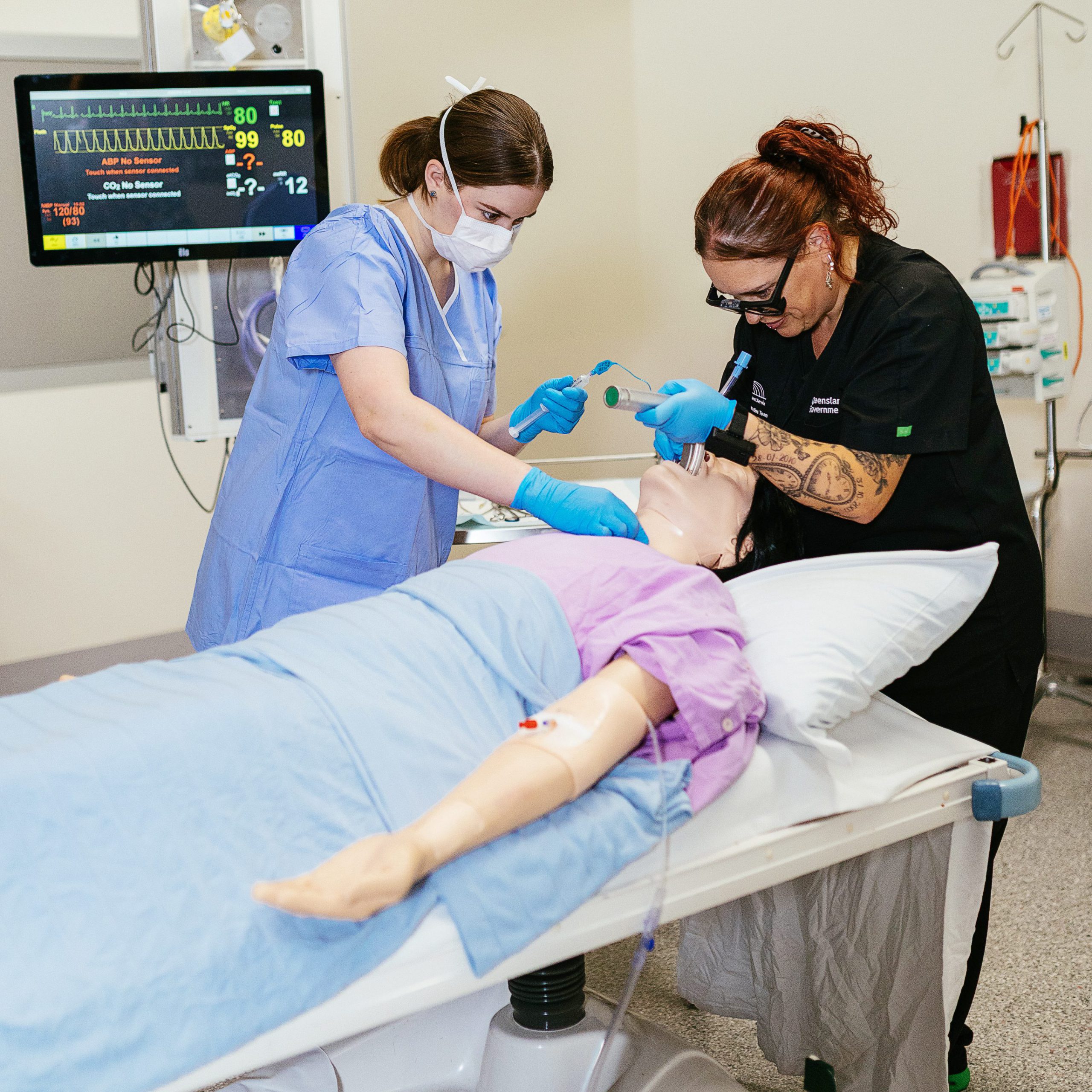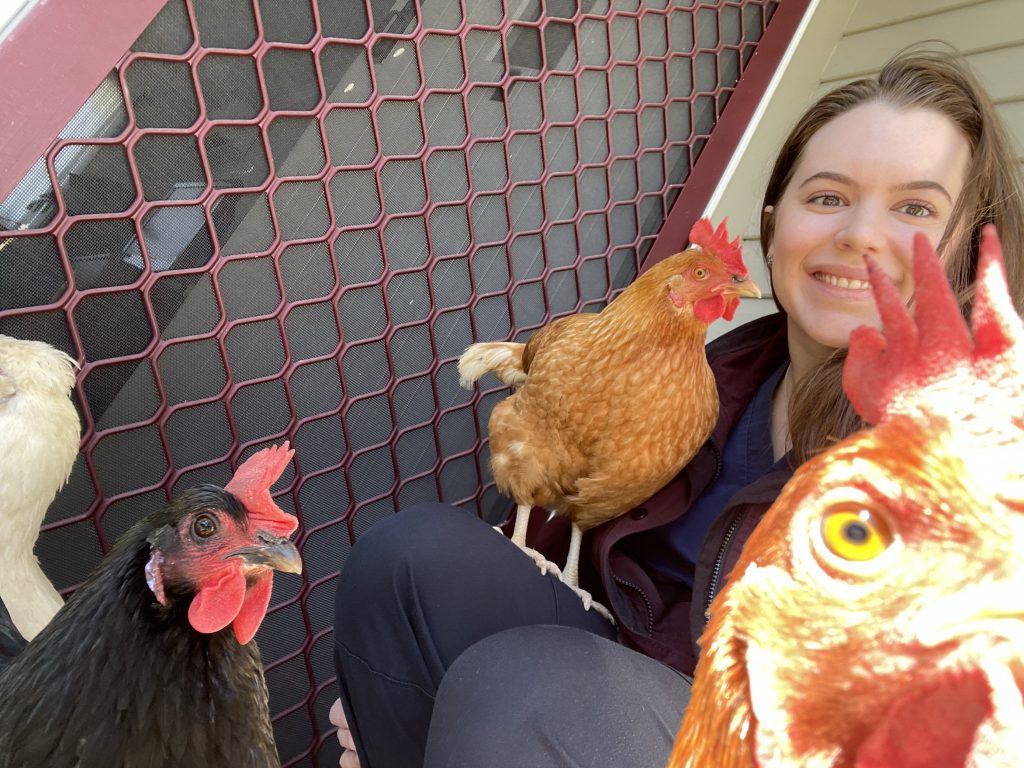
Meet Caitlin Sale, Nurse Educator – Innovation, and discover her journey from perioperative nursing to healthcare innovation. Learn how an Honorary Fellowship at CSDS transformed her career – and why she never looked back.
Please tell us about your career journey so far
Growing up in rural Queensland, the nearest doctor was hours away. Hence, I often found myself assisting my mum as she doctored our illnesses and nursed our injuries. These early experiences are what sparked my interest in nursing. I chose a nursing program that offered placements just four weeks into the first year because, let’s face it, I couldn’t wait to get my hands dirty (metaphorically speaking, of course).
Upon graduation, I was fortunate to receive several offers but ultimately chose a Perioperative program. I had fallen in love with the fast-paced, high-stakes environment during my placements. Working between the anaesthetic and post-anaesthetic units, I quickly realised the privilege of being there for patients on some of their toughest days – whether it was major cardiac surgery or a simple tonsil removal. No one wants surgery, but I enjoyed being there for them.
What led you to explore different healthcare settings?
Feeling right at home in the Perioperative environment, I decided to broaden my horizons by picking up agency work in various Brisbane theatres. This variety kept me on my toes and enriched my skill set, leading me to take a short contract at Thursday Island Hospital in Torres and Cape. It was here that I found my love for theatre and adventure. I was working in an operating theatre with panoramic views of the ocean during the week and hiking to the northern most tip of Australia on the weekend.
Back in Brisbane, I transitioned into Perioperative education, supporting new graduates and novices in the environment I cherished. When an opportunity arose at the Princess Alexandra Hospital (PAH), I jumped at the chance to expand my knowledge in trauma, transplants, and interventional procedures – areas I hadn’t explored much before. I’ve had the privilege of participating in several first-in-Queensland surgeries using innovative techniques and equipment. My journey from PAH took me to Longreach Hospital, where I filled a staffing shortage and satisfied my need for variety and adventure. Not only did I get to see real-life dinosaur bones, but I also encouraged ward and emergency nursing staff to adopt perioperative skills.
Can you share a standout achievement from your career?
Back in Brisbane, I collaborated with the Intensive Care Unit (ICU) to implement a change in patient transfers, improving ventilation effectiveness. This project earned American Nurses Credentialing Center (ANCC) ‘Magnet’ recognition, celebrating nursing innovation and quality improvement. I even had the honor of guiding delegates of the ANCC through a PAH site visit at the end of 2024!
I supported SWAPNet’s Rural Perioperative Training program, a fantastic initiative that travels across Queensland to provide simulated emergency training in local theatres. This program allowed me to visit Innisfail and Beaudesert, with more trips planned for the future. During this time, I also completed an Honorary Fellowship with CSDS focusing on Simulation, Innovation and the use of Artificial Intelligence. I enjoyed my time so much I applied and was thrilled to secure a position as Nurse Educator – Innovation, Queensland Innovation Living Lab (QuILL).
What inspired you to take on the Honorary Fellowship at CSDS, and how did that experience influence your career path?
I’ve always had a passion for simulation education, and attending sessions at CSDS only fueled that fire. I wanted to enhance my skills in simulation education and drive change within the healthcare sector which is why I applied for the Honorary Fellowship. Initially, I never saw myself venturing into research or innovation, but when I learned about the Queensland Innovation Living Lab (QuILL), I knew it was something I had to be a part of.
Throughout my career, I’ve lost count of the times I’ve used equipment, software, or processes that, if only the decision-makers had consulted us clinicians, they would have realised that they needed modifications or simply wouldn’t work in practice. This is precisely what QuILL aims to change. By engaging clinicians and consumers (the end-users) early in the development of new devices, the procurement of equipment and software, and in the support of critical incidents, we can gather invaluable feedback from those who actually use these tools.
Too often, we find ourselves creating workarounds due to ineffective or inefficient processes. If we get it right from the start, these workarounds become unnecessary. QuILL’s mission is to empower clinicians and consumers with a voice that is heard, leading to changes that enhance the effectiveness of our current and future workforces.

If you could use three words to describe the CSDS Honorary Fellowship Program, what would they be?
Collaborative. Thought-provoking. Empowering.
Looking ahead, what do you hope to achieve through your current role in the Queensland Innovation Living Lab?
Working with the Research and Innovation team at CSDS and the Queensland Innovation Living Lab (QuILL) has been an absolute pleasure. The goal throughout my career has always been to provide the best possible care for patients, no matter where they are in Queensland. I hope that by working with QuILL we can ensure clinicians are supported with the right medical technology, devices and processes to ensure all Queenslanders receive world-leading care.
Can you share a memorable moment or project from your career that solidified your passion for innovation in healthcare?
I’m currently working on modifying existing artificial intelligence software to support clinicians in Anaesthetics. A particularly memorable moment for me happened early on in this project. I was discussing my ideas with colleagues at the Princess Alexandra Hospital (PAH) when an anaesthetist overheard our conversation. They mentioned that such software would be a significant advantage for clinicians, particularly junior clinicians, for ensuring patient safety.
This was a real-time, real-life example of how innovation can have a tangible impact. My idea, which I believed had potential due to my clinical experience, was validated and supported by fellow clinicians. This experience underscored the importance of a clinician’s voice and listening to their feedback in order to create meaningful change.
Is there anything about you people might not know?
Most people do know this already, but I share my home with a husband and six delightful chickens named Margaret Hatcher (or Margi for short), Henrietta, Violet, Dolly Part-hen, Meryl Cheep, and Betty. Yes, I do love a good dad joke (as you can probably tell from their names). When I’m not tending to my feathered babies or working, you’ll likely find me watching the latest episode of Survivor or any SNL skit.

Passionate about advancing education, training, and patient safety in healthcare? The CSDS Honorary Fellowship Program offers an incredible opportunity to drive innovation and make a real impact. To learn more, contact our Nurse Educator – Innovation at csds-research-innovation@health.qld.gov.au. For enquiries about the Queensland Innovation Living Lab (QuILL), reach out to the QuILL Team at quill@health.qld.gov.au.









